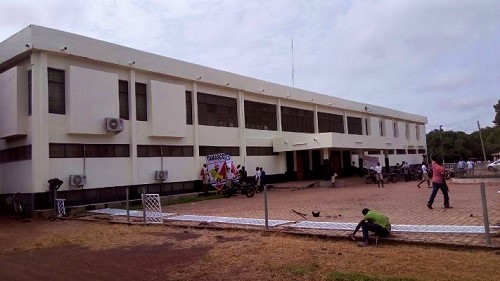
Falling academic performance in the north worrying
The falling standard of academic performance in northern Ghana has become an issue of great national concern.
The steady decline in academic performance over the last decade is most troubling, to say the least.
Indeed, records indicate that in both the Basic Education Certificate Examination and the West African Senior School Certificate Examination, the performance of students in that part of the country is ranked at the bottom.
Clearly, this is unacceptable and requires all hands on deck to reverse the trend.
Addressing the launch of the 60th anniversary of the Ghana Senior High School (GHANASCO) in Tamale last Saturday, the Minister for Business Development,
Advertisement
Dr Ibrahim Mohammed Awal, called for a consultative meeting of the various stakeholders in the educational sector to help find a lasting solution to the abysmal academic performance by students in the northern part of the country.
The subject becomes even more dire to discuss when we consider the central role parents and teachers play to complement the government’s efforts to revamp the educational sector.
While the government may be doing its part with a number of interventions, including the implementation of the free SHS policy, parents and teachers are equally obliged to play their effective roles.
That is why the Daily Graphic shares in the call by Dr Awal for a stakeholder engagement to map out effective strategies to improve the academic performance of students in the north.
Many issues can be highlighted as affecting academic performance in the north, including teachers’ unwillingness to accept posting to that area, particularly the remote places, leaving the schools and children poorer academically.
The north has some of the least developed environments in the country.
The lack of basic amenities there has been mentioned as a major turnoff for professionals, not least teachers.
Teaching and learning are most effective when they happen in the most conducive and attractive environment.
Teaching and learning under a tree, in a make-shift structure or a dilapidated/collapsing structure will hardly motivate the learner and the teacher.
That is why such a stakeholder engagement will come in timely to help address some of the challenges.
But the Daily Graphic notes that poverty levels in the north means parents also require their children on farms and in other economic undertakings.
Linked with the above is the notion that children who choose school over farming are sometimes considered lazy.
Indeed, in many areas, education is still not considered a useful acquisition that can transform the quality of the human resource for any future economic enterprise.
Instead, it is regarded as an escape route from the hard work on the farm.
It is worth acknowledging that there are more non-governmental organisations working in the educational sector in the north than in any other part of the country.
ActionAid, ProNet North, CAMFED and World Vision, for instance, are present in most areas of the Northern, North East, Savannah, Upper East and Upper West regions, while the Social Initiative for Literacy and Development Programme (SILDEP) works in the most deprived areas of the Upper West Region.
Yet, the efforts have not reflected in the outcomes.
It is, therefore, necessary to re-adjust the efforts and shift the strategies to attempt to elicit a favourable outcome.
For instance, the many professionals of northern descent could be used as ambassadors/role models to project the essence of and value in education.
We also propose a special motivational package, perhaps in the shape of scholarships, to teachers who accept posting to deprived areas.
